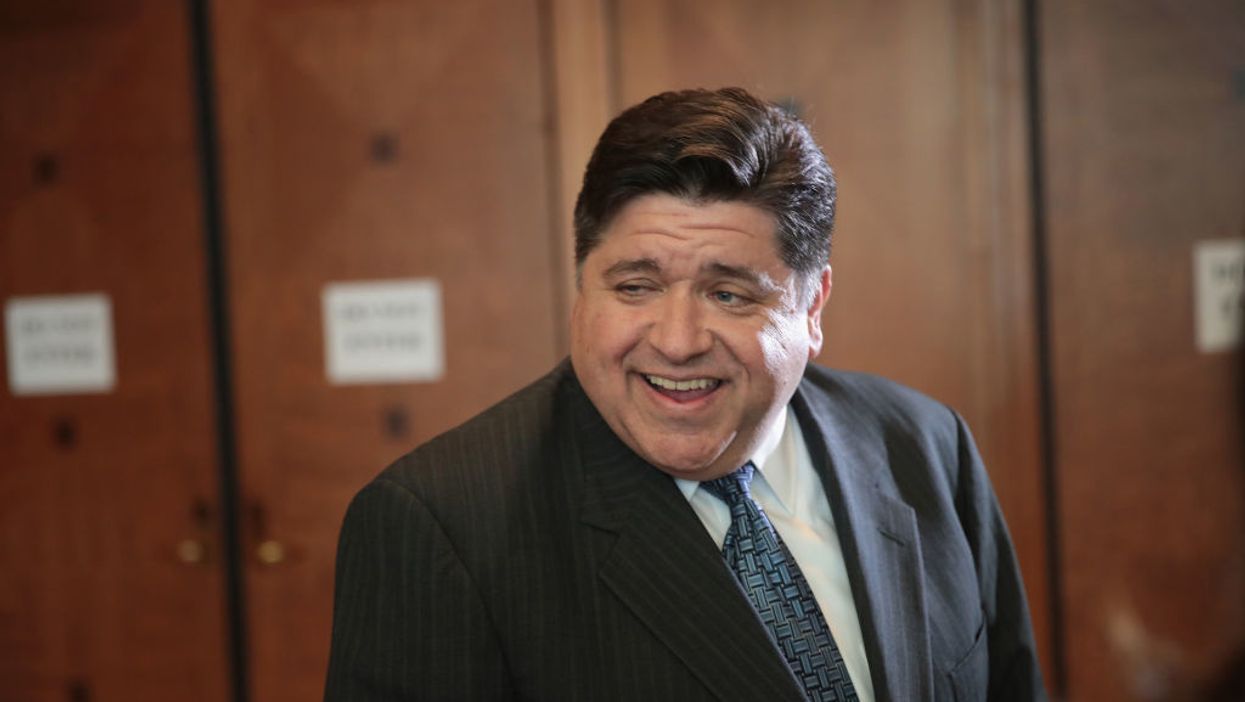Republicans in Illinois are accusing the state's Democratic governor of seeking to promote election fraud in November.
The allegation is the centerpiece of a lawsuit the Cook County GOP filed in federal court Monday against Gov. J.B. Pritzker. The Chicago Republicans contend the governor, by promoting the use of mail-in voting, is attempting to put as many ballots into play as possible in order to sway the election.
The litigation is a reversal of the normal narrative about courthouse battles over voting this year: Democrats suing GOP state governments for not doing enough to make voting easier during the coronavirus pandemic. It also amplifies President Trump's unfounded allegation that mail voting guarantees widespread election theft.
The suit alleges Pritzker "snuck through" several election easements that invite widespread voter fraud, mainly by allowing ballot applications to be automatically sent to all active voters.
GOP political rights are violated by "a partisan voting scheme that is designed to harvest Democratic ballots, dilute Republican ballots, and, if the election still doesn't turn out the way he wants it, to generate enough Democratic ballots after election day to sway the result," the lawsuit says of the governor.
The nation's fifth most populous state is the most reliably blue piece of the Midwest's electoral map. Its 20 electoral votes are a near lock for Joe Biden, who stands to extend the Democrats' presidential winning streak in the state to eight. So the lawsuit's success would mainly improve GOP prospects in down-ballot contests, including a House race in suburban Chicago, where Republican Rep. Rodney Davis is being vigorously challenged.
Passed in May by the solidly Democratic General Assembly and signed in June, the laws will:
- Deliver vote-by-mail applications to approximately 5 million voters across the state who have cast ballots in recent elections
- Expand voting hours
- Allow for curbside voting
- Designate Election Day a state holiday
Illinois already has one of the most liberal vote-by-mail laws in the country, with no excuse needed to apply for an absentee ballot — which Republicans argue makes the new measures unnecessary.
The suit also takes issue with the deadline for mailed ballots, claiming it contributes to the potential for fraud. Ballots submitted or postmarked by midnight on Election Day will still be counted even if they arrive at election offices two weeks later.
Republicans assert that Illinois is woefully unprepared to expand its vote-by-mail system so drastically, citing the state's 2017 experience establishing automatic voter registration that was fraught with problems. The program mistakenly registered over 500 people who were not U.S. citizens as well as 4,700 ineligible 16-year-olds.
The suit says the new laws do not comport with mail ballot recommendations set by the Postal Service. It recommends voters mail their ballots at least one week before the due date; however, in Illinois eligible voters can still request a ballot until Oct. 29, only three business days before Election Day.
Republicans even go as far as referencing Illinois' joblessness woes, by pointing to the 120,000 cases of unemployment fraud experienced during the coronavirus pandemic as evidence the state is "one of the most inept in the Union and the public has no reason to expect a vote-by-mail system to work any more smoothly than a variety of projects Illinois has stumbled through in recent years."
The lawsuit asks the court to stop the laws from taking effect. It was filed against Pritzker, the State Board of Elections, Cook County Clerk Karen Yarbrough and the Chicago Board of Election commissioners on behalf of the Cook County GOP by the Liberty Justice Center, a conservative legal enterprise.



















Trump & Hegseth gave Mark Kelly a huge 2028 gift